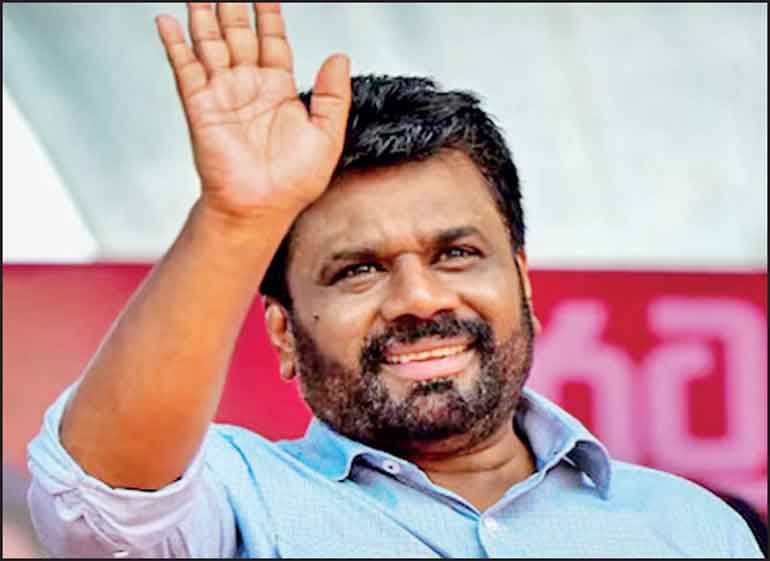Sunday Feb 22, 2026
Sunday Feb 22, 2026
Wednesday, 25 September 2024 00:00 - - {{hitsCtrl.values.hits}}

President Anura Kumara Dissanayake
Global rating agency Moody’s yesterday said political change in Sri Lanka with the election of Anura Kumara Dissanayake as the new President are unlikely to derail reform trajectory but underscored fiscal consolidation challenges.
“While Dissanayake’s election constitutes a major shift in Sri Lanka’s political landscape, we believe the broad appetite for reforms will remain intact. We do not expect significant disruption to the country’s reform agenda or macroeconomic policies, which include the ongoing debt restructuring and structural adjustments under its program with the International Monetary Fund (IMF). However, some policies are likely to be reprioritised amid challenges in maintaining fiscal consolidation that could keep credit risks elevated for some time,” said Moody’s in an issuer comment.
Following are some of the other observations by Moody’s Ratings.
Fiscal consolidation would contribute to a durable strengthening of Sri Lanka’s credit profile. Since its default in 2022, fiscal authorities have implemented a number of reforms to restore fiscal sustainability, such as raising the value-added tax and corporate income tax rates and lowering the personal income tax free allowance. These reforms increased revenue to slightly more than 11% of GDP in 2023 from 8.3% in 2021. In turn, the Government’s fiscal deficit narrowed to 8.3% of GDP in 2023 from 11.7% in 2021. However, we expect the Government’s debt affordability to remain weak, with interest payments likely averaging 40%-50% of revenue over the next two to three years, and still among the weakest across sovereigns we rate, albeit an improvement from more than 70% in 2021.
We do not expect any significant shifts in Sri Lanka’s reform trajectory or policies, although some reprioritisation is likely. Crucially, former president Ranil Wickremesinghe had pushed through an economic transformation act in Parliament in May. The act – in the absence of a new act or changes approved by Parliament – will oblige future governments to the current set of economic and fiscal reforms, including adhering to fiscal and debt targets set under the IMF program. The act also requires any Government to present to Parliament the steps and measures being taken to achieve specific targets stipulated in the act by 31 March each year, to maintain reform momentum.
In terms of policy priorities, Dissanayake has spoken about the need to tackle corruption, alleviate conditions for the poor and reduce austerity affecting social welfare, while pursuing economic and fiscal reforms. The new President has not opposed Sri Lanka’s debt restructuring deals and has said any changes to policy and reform measures will be in consultation with the IMF. However he has opposed the privatisation of state-owned enterprises in important sectors.
As any negotiation of potentially revised targets or changes in specific measures will take time, there could be delays in disbursements or finalisation of external debt restructuring with private-sector creditors. The possibility of early Parliamentary elections could also add to the delay. Dissanayake has said he would dissolve Parliament and call for early Parliamentary elections, which could take place as soon as November. We expect some period of political uncertainty until a new Parliament is formed.
Besides fiscal reforms, Sri Lanka has also made considerable progress in rebuilding its external position. Official foreign-exchange reserves rose to around $ 6 billion as of the end of August – sufficient to cover around 3.5-4 months of imports – from well below $ 2 billion for most of 2022. In turn, the rebuilding of external buffers has fostered a more stable macroeconomic environment, including a return to real GDP growth, rapid disinflation and improved balance of payments.